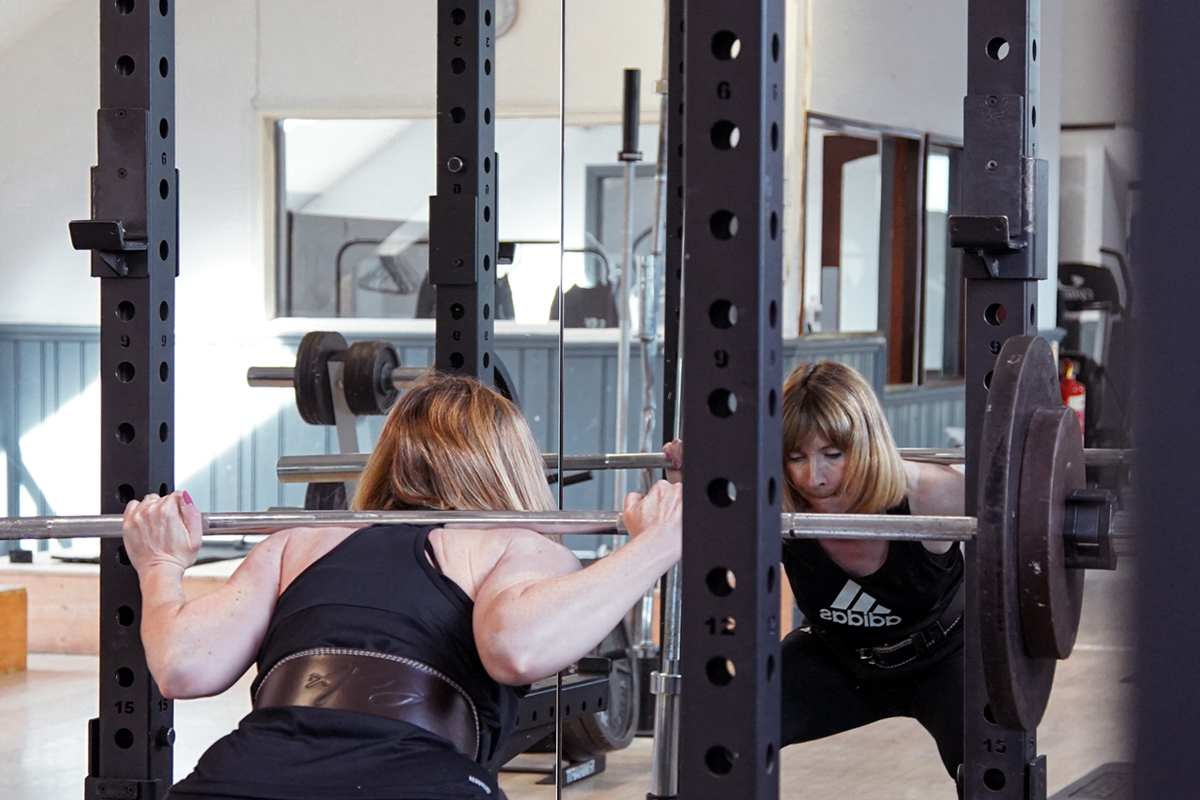
How muscle growth actually works
Muscle growth or hypertrophy occurs when the muscle tissue is slightly damaged during exercise, also known as micro tears (myofibrils) in the muscle tissue. This damage to the muscle is a necessary signal for muscle growth as it initiates the repair process. After training, it is important that you have a sufficient amount of rest so your body can repair the micro tears through a process called protein synthesis. The protein in protein synthesis is the same protein we consume through diet, whether that’s chicken, eggs, yogurt or tofu. Your body will use the protein from foods you eat to repair your muscles, allowing them to grow. This is why protein is an essential part of our diets, especially when strength training!
Other daily activities that aid muscle growth include, like we briefly discuss, diet, rest and recovery, with the main focus being sleep. When you sleep, your body goes into a deep state of rest, allowing the body to heal damaged tissue, reduce inflammation and repair muscle fibres. If you wish to find out more about how sleep impacts muscle growth, check out one of our latest blogs – How a good night’s sleep promotes muscle growth & recovery.
How hormones play a big part in muscle growth
Hormones work as a sort of chemical message within the body. Once the body tells the hormones what cell to target, they will travel through the body and bring about a particular change or effect to the cell, causing a chemical change within the body. We have many hormones in our bodies, and the amount of hormones varies from person to person, with different genders having either more or less of certain hormones.
Now, how hormones affect muscle growth all depends on the individual and their hormone levels. The main hormones involved in muscle growth are Growth Hormones (GH) and Testosterone. This is an important fact and a big factor as to why females don’t get bulky from strength training. In order for females to obtain a “bulky” or bodybuilder-like physique, they need to have extremely high Testosterone levels, of which are only obtained through the abuse of anabolic steroids (which we will discuss further later on). Most females will have nowhere near enough testosterone naturally to become anywhere that is considered “bulky”. Instead, they achieve a more desired toned physique. Due to the high energy output of strength training, their bodies burn fat and gain lean muscle mass.
The crucial impact diet has on your body when strengthening training
Your diet plays an important role in muscle growth, as we briefly discuss protein and the role it plays in muscle growth. It’s not the only macronutrient to play a part in not only muscle growth but strength training and fuelling the body.
Simply put, there are three macronutrients. These include:
- Protein – in foods like white meat, red meats, fish, eggs and tofu.
- Carbohydrates – which have two forms: simple and complex carbohydrates. Simple carbs consist of white bread, white rice and some fruits. Complex carbs consist of oats and brown rice, just to name a few.
- Fats – in foods like salmon, some meats, avocado and yoghurt.
Why social media has fooled you
When most females think of strength training, their minds instantly go to the women on the front of a fitness magazine with 8 packs and “boulder shoulders,” and this is a prime example of misleading media, which quite honestly is an unattainable physique unless you have some extra help. Whether this is through anabolic steroids or testosterone boosters, the full stop is that this kind of physique is only achieved through these means and great genetics. Females who don’t take any performance-enhancing drugs (PEDs) and train just as hard as the females who do will never achieve the same physique. You can train twice as hard as someone who takes PEDs, and the difference in physique will be astronomical.
The big reason as to why this is a problem is due to this misconception affecting people’s decision to start strength training from the fear of looking like the females on the front of fitness magazines. This leads to them missing out on the benefits strength training has to offer.
So in short, if you’re worried about starting strength training as it might make you bulky and too muscular — don’t, as it’s very hard to achieve and you would need to seek extra help in terms of PEDs. I would recommend looking at all the benefits strength training has to offer, as they far outweigh the misconception that strength training can make you “bulky.
